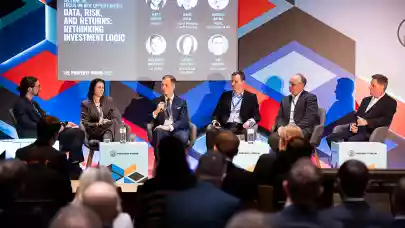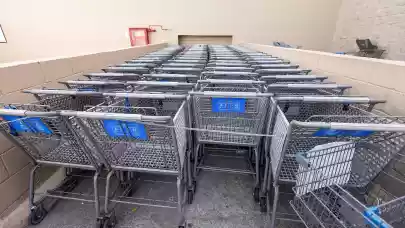
Alexandru Pascu, Regional Key Accounts Manager CEE at Atalian, spoke to Property Forum about the impact of ESG policies on the demand structure for facility management services and the growing role of technology in shaping the buildings of the future.
What is Atalian’s market coverage in CEE and how does this region contribute to the overall business results of the company?
Atalian has been created in 1944 and for 55 years, the company operated only in France. In 2000, the group marked its first international expansion, establishing operations in Hungary and Poland. In the last 22 years since Atalian established its first contact with the CEE market, the group's operations expanded to 9 countries (Hungary, Poland, Czech Republic, Slovakia, Romania, Croatia, Bosnia and Herzegovina, Serbia, Turkey). Currently, the CEE region has a contribution of 9% in the group's turnover, reaching in 2021 a consolidated result of €265 million.
This was possible through multiple acquisitions between 2000-2017, when Atalian acquired more than 10 companies only in CEE. Since 2018, we focused on the integration of the new companies, applying the group's values and strategy in each local entity.
How did you structure your portfolio of services for CEE-based clients and what are some of the trends you are seeing on demand formation?
Atalian is among the few companies in CEE delivering full FM including technical maintenance, project & construction management and security, with a high percentage of self-performing services. The integrated self-delivered model means a better control, higher flexibility, synergies, and value-engineering for our customers.
The FM market in CEE is still in development, and it is far from being homogenous, each country having its particularities and different maturity, so flexibility and adaptability to local factors are necessary for a successful player. However, the growth pace is faster than in Western countries, the main catalyst being the evolution of outsourcing, which is still far behind the mature countries.
Increasingly customers are getting into the first generation of IFM, which means that the market is transforming and becoming more stable, enabling operational harmonization. We believe that the outsourcing level will reach 50% in CEE region by 2027.
There are a couple of drivers urging the FM market transformation such as the need to reduce operating costs, single-source providers and regionalization as well as green initiatives.The disruptive economic impact of the pandemic and more recently double-digit inflation put the FM companies under continuous pressure and require spontaneous adaptation and transformation.
What were some of the most complex projects in which you deployed your full expertise in recent years?
Each new project we develop with an existing client is special, as it is the proof of the long-term and stable partnerships with some of the largest companies in the world. Among them there are Auchan (robotic cleaning services in Poland and technical expertise in Romania), Ahold Delhaize Group (technical services in Czech Republic and Romania), Michelin (expanding the partnership in Serbia and Romania), as well as JTI and BAT (Romania).
All over 32,000 customers are very important to us and we thank them for their trust. We are proud to have an average contractual length of 8 years, which grows every year through an intensive cross-border retention program.
What is Atalian’s development strategy across CEE-based markets in the upcoming years?
The Group ambition (BP2026) is to strengthen its market position by reaching the milestone of €5 billion in revenues each year, through both organic and bolt-on acquisitions. The CEE business objective for 2026 is to reach €383 million incomes (CAGR 6.6%). We focus on the exiting base consolidation in the region, but we keep an opened eye for acquisitions in markets with high potential (Poland, Turkey), as well as in new markets (Slovenia). The emergent countries in CEE are considered appealing for new investments by our shareholders.
Which property segments are represented best in Atalian’s portfolio at regional level?
The segmentation by the scope of the property is led by commercial properties (CRE), followed by the retail chains and industrial sites (manufacturing). These 3 sectors bring over 70% from our regional incomes. When we look at the segmentation by the client activity, then the top is composed by FMCG, Banking and Automotive. We are targeting to better penetrate other sectors as well, like hospitality, education and medical, where our colleagues from other regions are very well performing.
Are geopolitical risks a factor you integrate in your operations across the CEE?
We are a flexible company, which can adapt quickly and cope with change, due to the benefit of having a family shareholding with strong long-term vision and celerity in decision making. I am proud of how the whole company reacted back in 2020. The steering committee created to oversee the business impact of the pandemic has developed a detailed plan based on 3 vectors: the safety of our employees, operational and business continuity, and adaptability to new market requirements.
A more sensitive topic from a corporate narrative perspective is the conflict between Russia and Ukraine. As human beings, we can only condemn the war. As a company, we made every effort to support our Ukrainian employees and their families. Many of our colleagues in Poland, Czech Republic and Romania personally involved in helping the refugees, providing food and accommodation for them. Since the beginning of the conflict, we encountered isolated issues in the supply chain, but our procurement did a great job in finding alternative solutions for our customers.
How do you approach the field of tech innovation and are you deploying tools to enhance efficiency of operations inside buildings?
At Atalian, the innovative tech is in our DNA. Our operational performance is driven by 4 pillars: digitization, innovation, QHSE and ESG. In 2018, the group Innovation Lab has been set up with a clear mission: to be pioneers!
I would mention some of the most important milestones achieved in CEE region, even though our region has not yet reached the technological maturity of the western countries, as the labour cost is still low versus the technology cost. Up to now we have deployed cleaning robots in multiple retail stores and airports, we implemented CAFM software across 75% of our sites, we used multipurpose drones and worked with assisted reality for remote assistance, dry-ice technology in industrial cleaning. Some of the most creative countries within our region are Turkey and Romania, where we self-developed several IT tools for operations such as ifTask, Atalian Academy and I AM Atalian.
We are currently implementing One Atalian, a cloud first digital platform which integrates all our systems used around the globe into one interface, providing 360-degree view for the customers.
Property developers are boosting investments in their ESG agendas. What does this mean for an FM operator?
It is just the beginning of sustainable developments, and the standards will become only higher from now on. We already see that Germany set stricter rules than the EU. New ESG regulations are speeding up the FM market concentration, as many small and local companies will probably not have the capital to invest in ESG friendly solutions, or the resources to monitor and report the ESG metrics.
In 2021, the Atalian group established IMPACT2030 roadmap, identifying 17 environmental, social and governance issues directly related to our activities, in accordance with the recommendations of international benchmarks and United Nations. The purpose of IMPACT2030 is to set, implement, monitor, and report the ESG KPIs, ensuring the achievement of our commitments.
How many employees does Atalian have in CEE markets and what are your strategies on talent retention and recruitment?
In the CEE region we have 12,700 valuable colleagues, who contribute every day through their skills and abilities to the FM experience of our clients. As a service delivery company, our successful business is primarily based on the employees’ ability to deliver best-in-class services on time.
Given the trends of the FM market, but also the lack of global staff, people's skills and productivity became a priority for us in recent years. Through intensive programs of specialized trainings and personal development, we invest in our employees, which is beneficial to both parties: people continue their professional and personal development, while the company benefits from their new skills and knowledge.
The happiness and well-being of employees is paramount for us, not only from the staff retention perspective, which has a high percentage (95%) compared to the market, but happy employees are acting like a magnet for new talent attraction. Unlike 15-20 years ago, the new generations focus on lifelong learning, looking for a flexible and open environment for innovation, which changes the entire working ecosystem.



